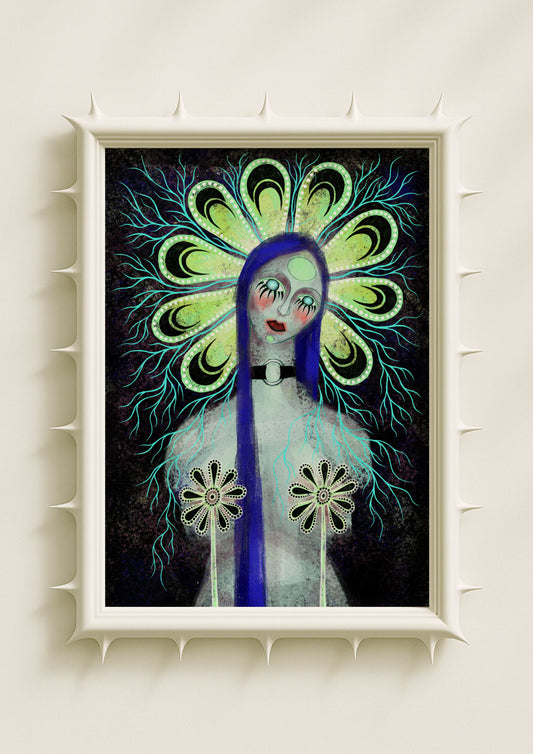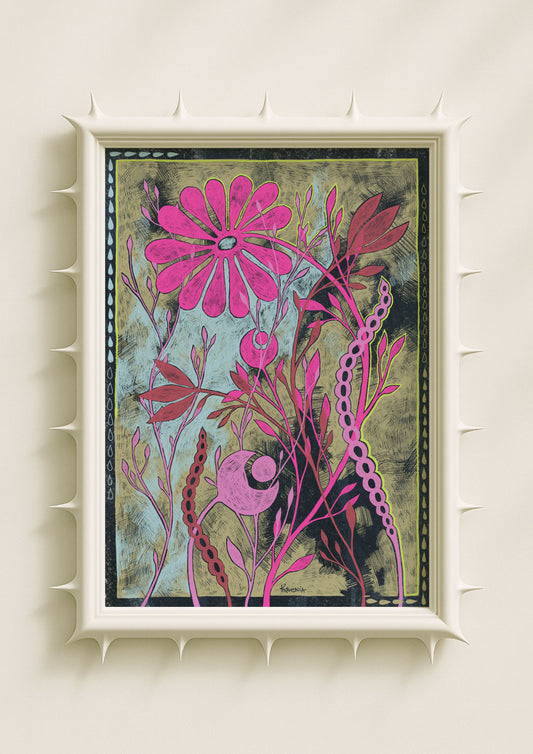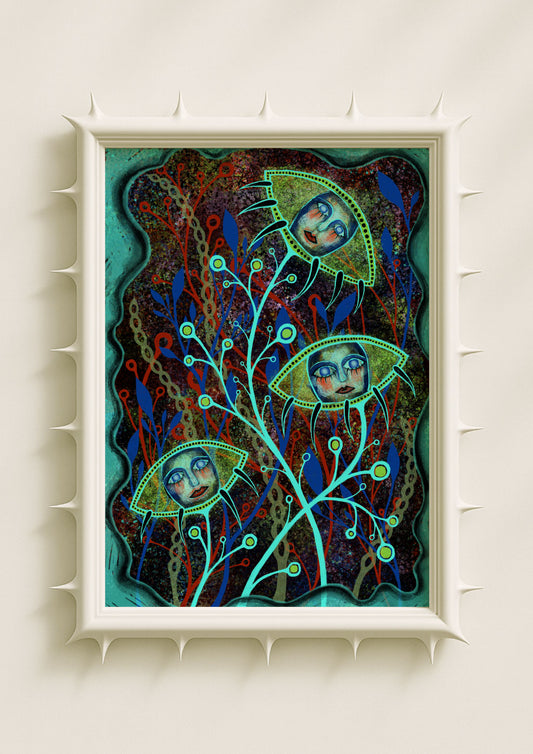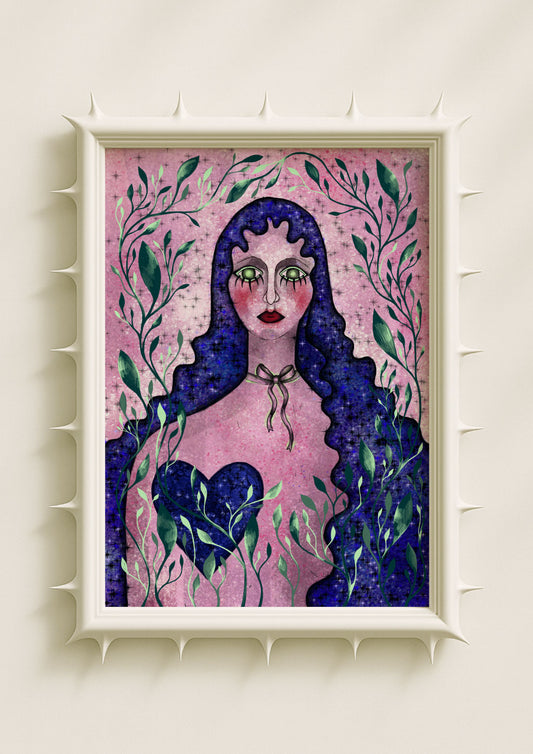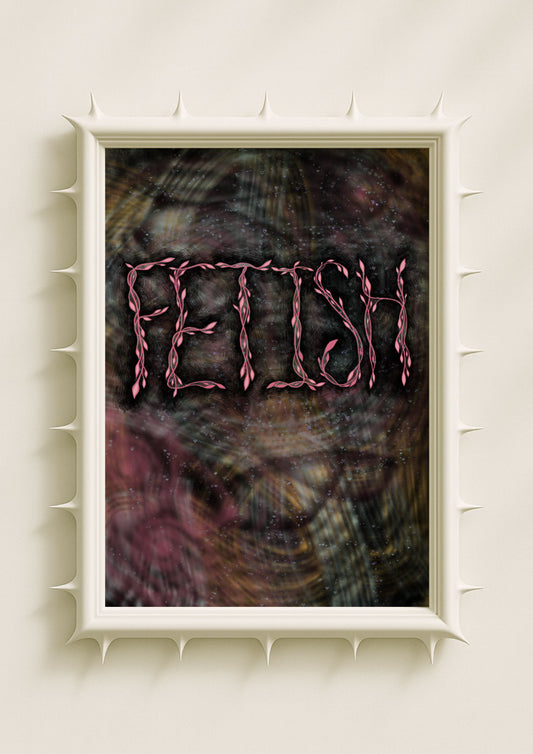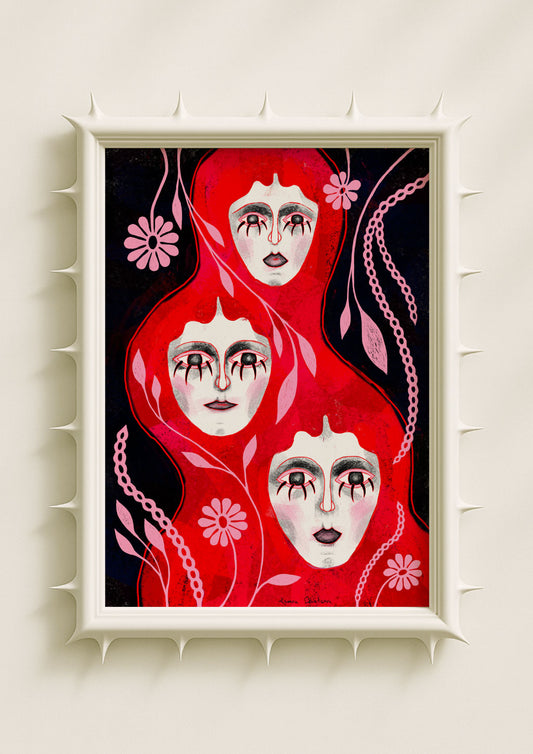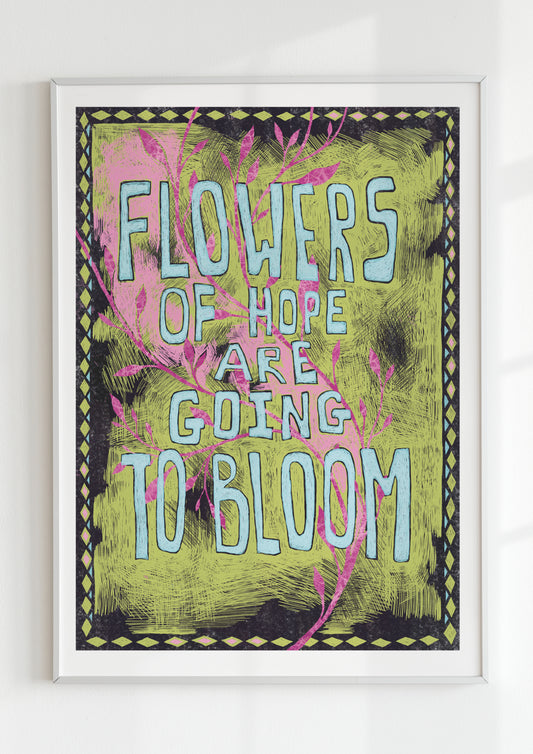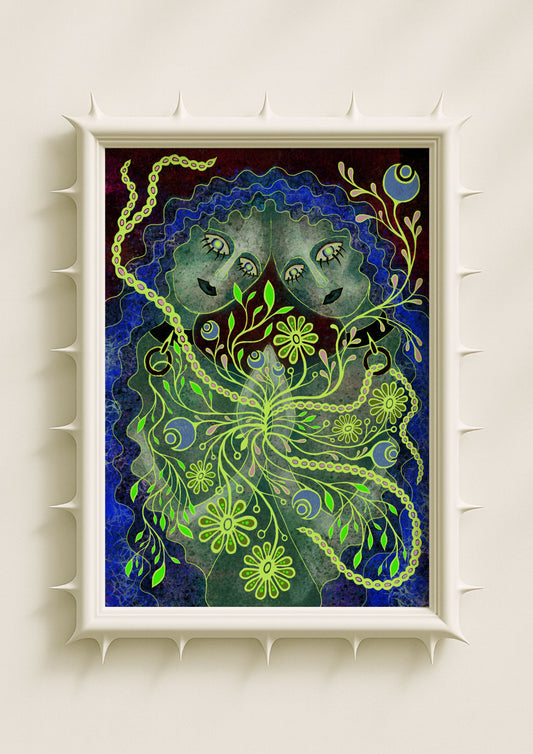Why Flowers Have Always Carried Feminine Meaning
Flowers have long been woven into the visual language of femininity. Not because they are delicate, but because they hold layers of symbolism: blooming, unfolding, protecting, revealing, and transforming. In wall art, florals become metaphors for inner states rather than decoration. Their shapes, colours, and rhythms echo the emotional landscape of feminine identity — complex, shifting, and endlessly expressive.

The Maiden: Softness, Innocence, and the Beginning of Becoming
Some floral compositions carry the archetype of the maiden — a phase of openness and early blooming. Petals that feel barely unfolded, pastel tones, and gentle symmetry suggest vulnerability paired with potential. This archetype isn’t about fragility; it’s about newness. The maiden exists in that moment just before transformation begins, where softness feels powerful because it is unguarded.
The Sensual Woman: Curves, Colour, and the Language of Bloom
Flowers have long embodied sensuality because they reveal themselves through movement: opening, expanding, revealing inner colour and form. In wall art, saturated petals, rounded shapes, and glowing transitions become metaphors for sensual presence. A flower at full bloom mirrors the feminine archetype of the sensual woman — confident, embodied, unapologetically expressive. This is softness as magnetism, colour as heat, bloom as invitation.

The Witch: Wildness, Mystery, and Untamed Growth
Not all florals in art are gentle. Some twist, stretch, or bloom in unexpected directions — strange botanicals, dark centres, asymmetrical petals, surreal hybrids. These forms resemble the archetype of the witch: intuitive, unpredictable, connected to forces beneath the surface. In wall art, these flowers challenge the stereotype of femininity as passive. They represent wild growth, inner power, and the magic of embracing one’s own strangeness.
The Mother: Cycles, Fertility, and Protective Forms
Circular floral shapes, layered petals, and enveloping silhouettes often evoke the archetype of the mother. These flowers feel full, nurturing, cyclical. Their presence in wall art symbolizes both creation and protection — forms that hold, shelter, and sustain. Even without depicting a literal figure, floral compositions can convey the emotional warmth and grounded strength associated with motherhood.
The Shadow Feminine: Beauty with an Edge
Some floral artworks hold an undercurrent of tension — dark gradients, strange hues, petals that look a little too sharp, or blooms that feel slightly uncanny. These images carry the archetype of the shadow feminine: the part of femininity associated with depth, desire, introspection, and emotional honesty. They explore beauty that is not sweet but charged, not passive but aware. The flower becomes a vessel for emotions that simmer below the surface.

Feminine Transformation Through Floral Symbolism
Flowers move through stages: budding, blooming, decaying, reseeding. These natural cycles mirror the emotional and psychological transformations of femininity. In wall art, this symbolism becomes a quiet language. A barely-open bud may represent anticipation; a full bloom suggests expansion; a fading petal hints at release or renewal. Every stage holds meaning — none is static.
Why Flower Wall Art Continues to Speak to Feminine Identity
Florals in art carry archetypes without limiting them to stereotypes. They allow femininity to be soft or wild, sensual or introspective, blooming or dissolving. Flowers hold contradictions the way women often do: beauty with complexity, vulnerability with resilience, ornament with depth.
In wall art, floral imagery becomes a way to explore feminine identity not as a single definition but as a shifting constellation — a visual language of becoming, changing, feeling, and blooming in one’s own rhythm.
